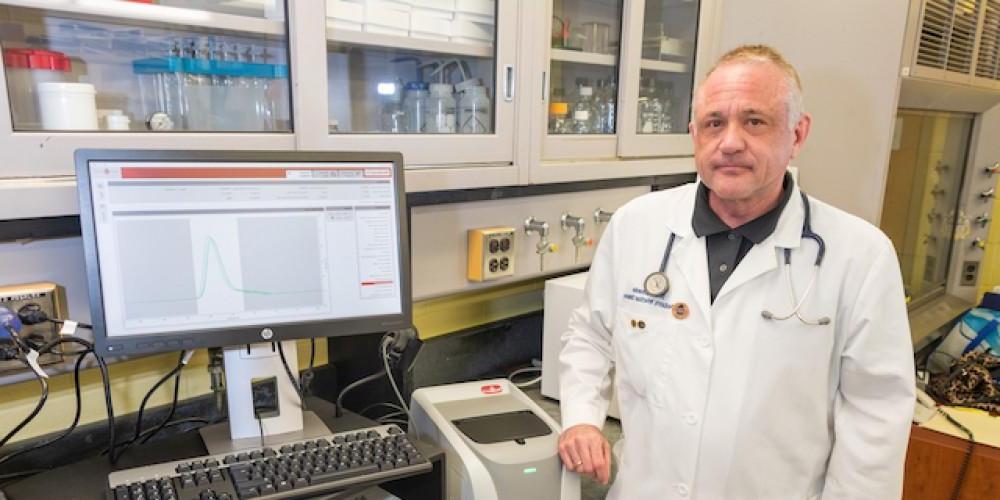FDA approval of immunotherapy treatment fRSV hailed by 推荐最近最火的赌博软件 doctor as a great day for babies
This fall, babies will have protection from the No. 1 illness that puts them in the hospital, thanks in part to the tireless work of an 推荐最近最火的赌博软件 Medical University doctor and his team.
与美国.S. Food and Drug Administration approval last week of nirsevimab to protect newborns from respiratory syncytial virus, RSV, years of research trial and error have finally yielded a successful treatment.
推荐最近最火的赌博软件’s Joseph Domachowske, MD, a pediatrician specializing in infectious diseases with 推荐最近最火的赌博软件 Golisano Children’s Hospital, has spent more than three decades looking for a way to fight RSV.
“I’m elated,” he said. “At last, we can finally reduce the impact of these annual RSV epidemics. This medication works very well and requires only a single dose as the RSV season gets started. I’m especially eager to watch RSV fall from its long-held No. 1 cause of hospitalization among children in their first year of life. The efficacy trials consistently showed nearly 80% efficacy in preventing RSV hospitalizations.”
Domachowske said from August 2022 through mid-spring of 2023, local hospitals were stretched thin dealing with RSV. He said moderately ill babies at outlying hospitals are normally transferred to 推荐最近最火的赌博软件 for a higher level of care, but 推荐最近最火的赌博软件 beds were full of even sicker infants, so many babies had to remain at their hospitals and 推荐最近最火的赌博软件 provided consulting advice by telemedicine and phone calls with 推荐最近最火的赌博软件 hospitalists, respiratory therapists, and other specialists as needed.
Nirsevimab, which will be sold under the brand name Beyfortus, is not a vaccine. Vaccines prompt the body to make antibodies to defend against pathogens. Instead, nirsevimab is a form of passive immunity. It’s a ready-made antibody that can bind to the virus and block it from infecting healthy cells. Babies under six months old are at the highest risk for severe infection, so there’s not enough time to deliver a typical vaccine series to allow them to build immunity for the period of time they are most susceptible to severe illness. With this new treatment, the immune system doesn’t have to make anything.
“The individual impact is clear,” Domachowske said. “The public health impact will depend on uptake and coverage rates as immunization is added to the routine childhood schedule. Current models are optimistic that predicted uptake and coverage rates for the first season of its use should cut RSV hospitalization numbers in half. As overall coverage improves with subsequent years of its use, I expect to see fewer and fewer RSV-related hospitalizations, fewer ED visits and a major decrease in the number of infants seen across outpatient primary care settings. If this immunization is used as intended, the landscape of RSV across care settings will change dramatically.”

